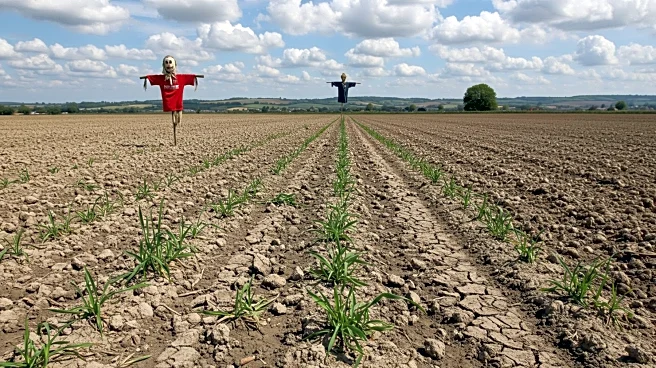What is the story about?
What's Happening?
Arable farmers in Wiltshire are experiencing one of the driest and earliest harvests in decades, leading to significantly reduced yields. Tim Carson, a wheat farmer from Alton Barnes, reported that his farm's yield is down to six tonnes per hectare, compared to the usual nine to ten tonnes. The lack of rainfall during critical growing months has resulted in cracked ground and damaged crop roots. Farmers like Carson and Charlie Rudler are facing financial challenges as costs rise but crop prices remain stagnant. Despite the difficulties, they are adapting to changing weather conditions and remain optimistic about future harvests.
Why It's Important?
The dry conditions affecting Wiltshire farmers highlight the broader impact of climate variability on agriculture, which could have significant economic implications. Reduced yields may lead to financial strain for farmers, affecting local economies and food supply chains. The situation underscores the need for adaptive strategies in farming practices to mitigate the effects of climate change. It also raises concerns about long-term sustainability and the resilience of agricultural systems in the face of environmental challenges.
What's Next?
Farmers in Wiltshire may need to explore alternative farming techniques and crop varieties that are more resilient to dry conditions. There could be increased demand for government support and investment in agricultural research to develop solutions for climate-related challenges. The situation may also prompt discussions on policy changes to support farmers and ensure food security in the region.
















